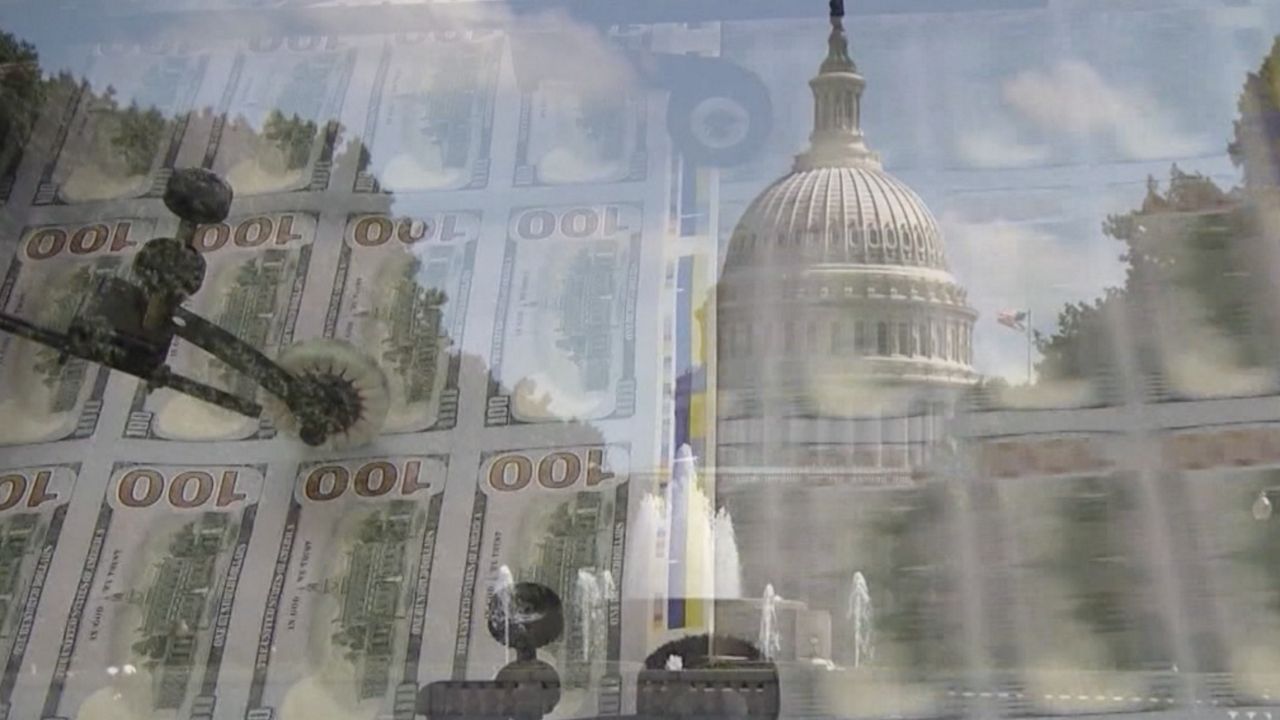Congressional lawmakers are teeing up a vote to avoid a government shutdown Thursday night, a vote which could also unlock additional support for New York communities ravaged by Hurricane Ida.
The short-term government funding bill is expected to also include billions of dollars to help areas ransacked by the storm, including those left underwater in New York.
That money could come in the form of grants for resiliency projects, plus money to help homeowners.
“We need to not just build back to what it looked like the day before Hurricane Ida,” said Rep. Grace Meng, whose Queens district was hit especially hard. “Some of these places have had long lasting problems … We want to make sure that this is never going to happen again.”
But that is just one of the many major bills lawmakers are juggling this week, with President Joe Biden’s domestic agenda at stake.
Central to the discussions are the two massive spending bills that comprise the Biden legislative effort: a bipartisan infrastructure proposal that includes spending on bridges, roads, and broadband, plus a larger Democrat-led social-spending plan, with money for education, healthcare, childcare and climate resiliency.
Rep. Paul Tonko is touting what those two bills together could mean for his Albany-area district.
“I look at a huge investment in lead pipe removal. No children, no family should be drinking water from lead-infested pipes,” he said. “I envision the Port of Albany, for instance, being a great active spot that will be the go-to center for the East Coast for offshore wind.”
But questions remain as to whether Democrats can get those bills across the finish line. Democrats remain at odds over the size of that package. A sense of distrust between House progressives and Senate moderates is only adding to the stalemate.
Congressman Jamaal Bowman, who represents the Bronx and parts of Westchester County, is among the group of House progressives warning they will not vote for the hard infrastructure bill if the larger social spending plan is not already approved.
“If we go forward with the bipartisan bill before the Build Back Better Act, we have no guarantees that they will honor their word and support the Build Back Better Act,” Bowman said, referencing two moderate senators who have so far resisted the social programming proposal.
Those two senators are Sen. Joe Manchin of West Virginia and Sen. Kyrsten Sinema of Arizona.
Many House members are frustrated, arguing that they do not know what Manchin and Sinema specifically want, making landing their votes difficult.
Tonko had these words for the pair: “You can’t negotiate against yourself, you can’t negotiate as one party at the table … so I’m imploring them to define themselves.”
Meanwhile, pressure is building for action. New York’s state comptroller warned in a recent report that if Congress fails to pass the hard infrastructure plan, the MTA’s capital improvement program could take a hit.


